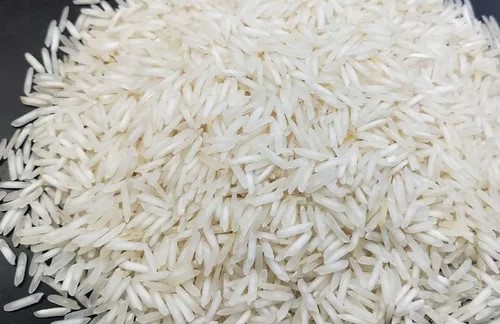
Despite a significant increase in rice imports through the two land ports in the country’s south western region —Bhomra and Benapole, it has had no impact on the local rice market. Instead, within a month, rice prices in varieties have surged by Tk 4 to Tk 8 per kilogram in different districts of the Khulna division.
Industry experts blame the failure to meet the government’s designated import target for the price increase rather than a decrease. They argue that if the required volume of rice had been imported, despite fluctuations in domestic supply, prices would not have become unstable.
According to official data, from October 13, 2024, to March 13, 2025, a total of 156,313 tonnes of rice were imported through these two land ports—137,515 tonnes via Bhomra and 18,800 tonnes via Benapole. However, this figure falls significantly short of the government’s import target of 332,000 tonnes, which included 273,000 tons of parboiled rice and 119,000 tons of Atap rice.
The imported rice varieties mainly include Miniket, Nazirshail, Basmati, Swarna, and Jamaibabu—each of which has experienced price hikes in the country’s domestic market
Md. Moinul Haque, Senior Revenue Officer at Bhomra Customs Station, stated that between October 13, 2024, and February 2025, the port facilitated the import of 137,515 tonnes of rice, valued at Tk 686 .83 crore.
Despite this, local rice markets across the ten districts of the Khulna division—from Satkhira to Kushtia—have seen no significant price relief. Even during peak harvest season, prices have remained high.
Tapan Kumar Saha, owner of Tapan Auto Rice Mill in Satkhira’s Chaltetala area, reported that fine-quality Super Miniket rice is currently being sold at Tk 75 per kilogram wholesale, while regular Miniket is priced at Tk 70, and Basmati at Tk 84. Other varieties, such as Chikon 28, Chikon 63, and coarse rice types like Jamaibabu and Swarna, are selling for Tk 66, Tk 75, and Tk 52 per kilogram, respectively.
Saha attributed the rising rice prices to the increased cost of paddy, stating, “As paddy prices rise, the impact is directly reflected in rice prices.”
Deputy Director of Satkhira District Agriculture Extension Office, Saiful Islam noted that despite the district producing 40% more rice than its demand, prices remain high.
“Satkhira produces at least 600,000 tonnes of rice annually during the Aman and Boro seasons, while the maximum demand is only 400,000 tonnes. Yet, prices are not coming down,” he said.
Rice trader Din Mohammad from Jashore observed a price hike of Tk 4-5 per kilogram since the beginning of Ramadan. Before the holy month, BRRI-28 rice was priced at Tk 64 per kilogram but is now being sold at Tk 68-69. Similarly, Miniket has risen from Tk 72 to Tk 76, coarse rice from Tk 52 to Tk 56, and Basmati from Tk 84 to Tk 88-90 per kilogram.
The imported Indian rice variety is available at Tk 58 per kilogram, but according to Mohammad, “Consumer demand for Indian rice remains low.”
Meanwhile, in Khajanagar, Kushtia—one of the country’s largest rice producing and trade hub—there is significant instability in the price of fine rice. Here, narrow-grain rice varieties polished from coarse-grain paddy, such as BRRI Dhan-28, BRRI Dhan-29, Hybrid Dhan, and Kajol Lata, have increased by Tk 8 per kg.
Only One-Fourth of Permitted Imports Materialised
To ensure food security and stabilize the rice market, the government permitted 92 major importers to bring in duty-free rice under a quota system through international tenders and open-market purchases.
Port sources reported that import permission was given for 273,000 tonnes of parboiled rice and 119,000 tonnes of Atap rice.
However, customs authorities reported that the actual imports fell significantly short of this quota due to a restricted 25-day import and distribution window.
Many importers failed to meet the deadline. As a result, the government extended the deadline multiple times. Most recently, the deadline was extended to April 15, as per a March 6 notification signed by Food Ministry Deputy Secretary Ariful Islam.
Government Urged to Adopt Long-Term Planning
Shamim Hossain, Director (Traffic) of Benapole Land Port, informed The Kushtia Times that all necessary steps are always being taken to expedite customs clearance of imported rice so that prompt distribution in domestic markets is ensured.
Benapole Customs House Commissioner Md. Kamruzzaman confirmed that imported rice reached various district markets swiftly. However, he admitted that “Despite timely distribution, the expected impact on prices has not been observed.”
Abdul Khaleq, Managing Director of Desh Agro Food, one of Kushtia’s largest rice producers, explained that the government usually imports rice based on production and demand calculations and in this case, demand was higher than overall production.
“If the required volume of rice is not imported, price instability is inevitable, “he said, urging the government to adopt long-term planning to ensure price stability.